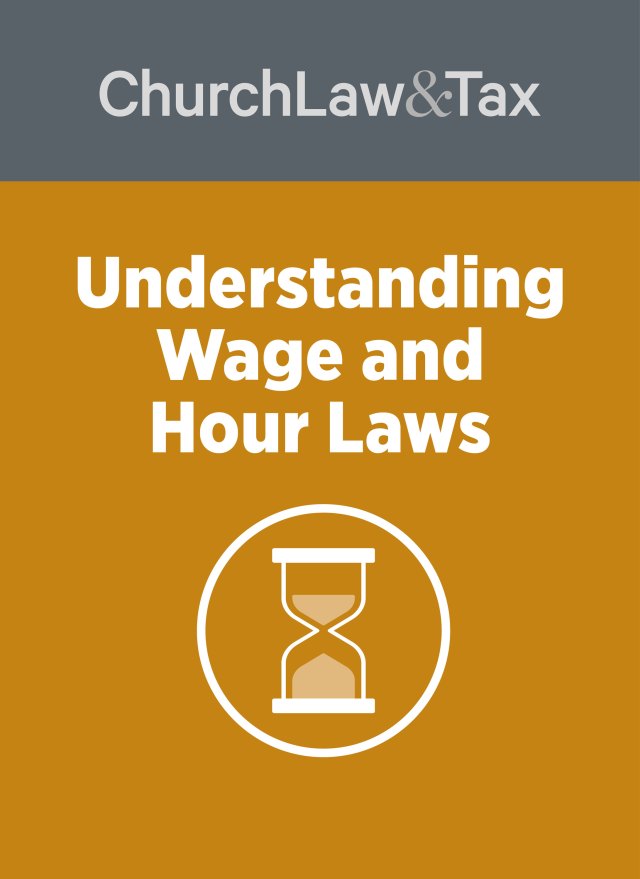Key point 8-08.7. Ministers who are employed to perform ministerial services, and who are paid a salary that meets or exceeds the “salary test,” are professional employees exempt from the provisions of the Fair Labor Standards Act. Ministers not compensated on a salary basis, or who earn a salary below the salary test, may not be covered by the Act. Department of Labor regulations suggest that the Act does not apply to any ministers, and a few federal courts have ruled that the so-called ministerial exception prevents the application of the Act to ministers.
A federal appeals court ruled that the so-called “ministerial exception” prevents clergy from suing their employing church for violating the minimum wage or overtime pay requirements of the federal Fair Labor Standards Act. A married couple were ordained ministers of the Salvation Army, with the rank of captain, assigned to be the administrators of the Salvation Army’s Adult Rehabilitation Center in Indianapolis. Ministers of the Salvation Army receive no wages, though they receive “an allowance … sufficient for basic needs.” The allowance that each spouse received was $150 a week. They sued the Salvation Army for violations of the minimum wage and overtime pay provisions of the Fair Labor Standards Act. Their employment was immediately terminated for bringing the lawsuit. A federal district court dismissed the lawsuit on the basis of the ministerial exception. The ministerial exception is a court-made rule, based on the First Amendment’s religion clauses, that bars the courts from resolving discrimination and other employment related disputes between churches and clergy.
On appeal, the couple asserted that the ministerial exception should not apply in this case since requiring churches to obey the Fair Labor Standards Act would not “limit the right of a religious organization to decide who will perform religious functions [or] who will be the ministers.” They referred to a previous case in which the United States Supreme Court ruled that non-minister “associates” of a religious organization engaged in rehabilitating drug addicts were employees entitled to the protections of the Fair Labor Standards Act. Tony & Susan Alamo Foundation v. Secretary of Labor, 471 U.S. 290 (1985). Forcing it to pay minimum wages to the associates added to its costs, but “did not require a court to adjudicate religious issues or to order a church to retain a minister whom it considered unfit on religious grounds.”
A federal appeals court noted that it is a much different case when a law like the Fair Labor Standards Act is applied to a minister rather than to a lay employee having no religious functions. It pointed out that the couple themselves had testified that their duties included “preaching,” “leading worship singing,” “overseeing or leading daily devotions,” “overseeing or teaching Bible studies” to the residents, “overseeing or conducting Christian living classes” for them, and teaching classes for prospective Salvation Army ministers.
The court adopted a presumption that clergy are not covered by the Fair Labor Standards Act. The presumption “can be rebutted by proof that the church is a fake, the ‘minister’ a title arbitrarily applied to employees of the church even when they are solely engaged in commercial activities, or, less flagrantly, the minister’s function entirely rather than incidentally commercial …. It would be a case of a bonafide minister who had, however, stepped entirely out of his religious role to manage a commercial enterprise full time.” The court noted that none of these grounds for rebutting the presumption was available in this case.
Application. This case is important because of the court’s conclusion that the “ministerial exception” applies to the FLSA, which means that a minister’s claims to the minimum wage and overtime pay cannot be resolved by the civil courts. A number of other courts have reached this same conclusion. Each of these cases was addressed in prior issues of this newsletter.
Another interesting aspect of this case is the fact that the court’s opinion, on two occasions, expressed bewilderment at the Salvation Army’s failure to raise the defense that the terminated officers were “administrative employees” exempt from coverage under the FLSA. Of course, the reason this defense was not raised was that it was not available. To qualify for this exemption, an employee not only must perform the duties of an administrative employee, but also must be paid on a salary basis of at least $455 per week. Since each of the two officers was paid weekly compensation of only $150, neither was an exempt administrative employee under the FLSA. It is disconcerting for a federal appeals court to be so unfamiliar with the law. Schleicher v. Salvation Army, 518 F.3d 472 (7th Cir. 2008).
Resource. For more information on the legal requirements for performing a valid marriage, and a helpful checklist for ministers to follow, see chapter 3 in Richard Hammar’s book, Pastor, Church & Law Vol. 1 (4th ed. 2008), available by calling 1-800-222-1840. Note that this is the newly-released and fully updated fourth edition.
This Recent Development first appeared in Church Law & Tax Report, January/February 2009.


